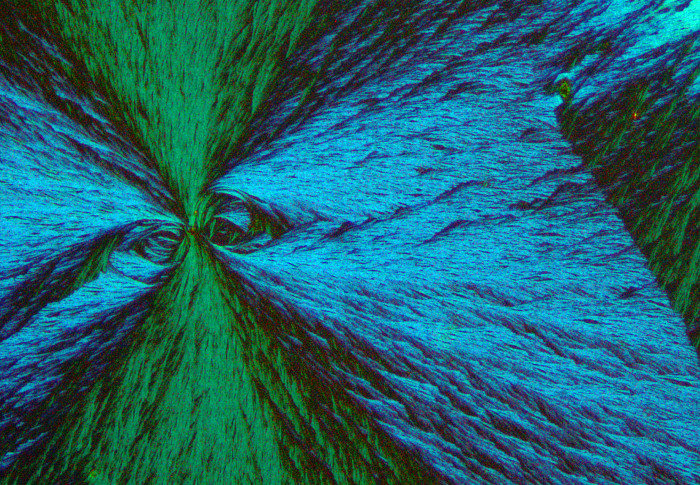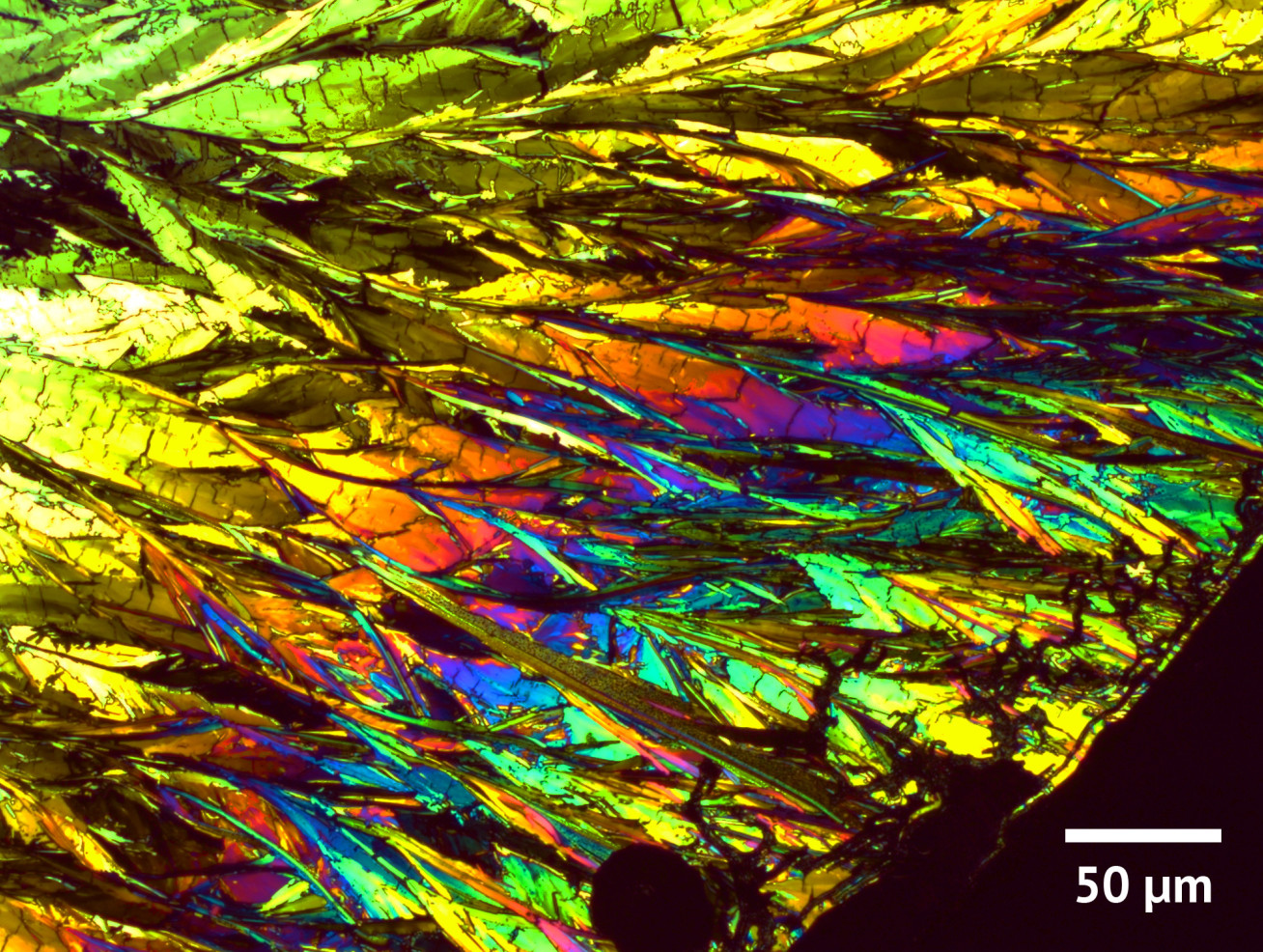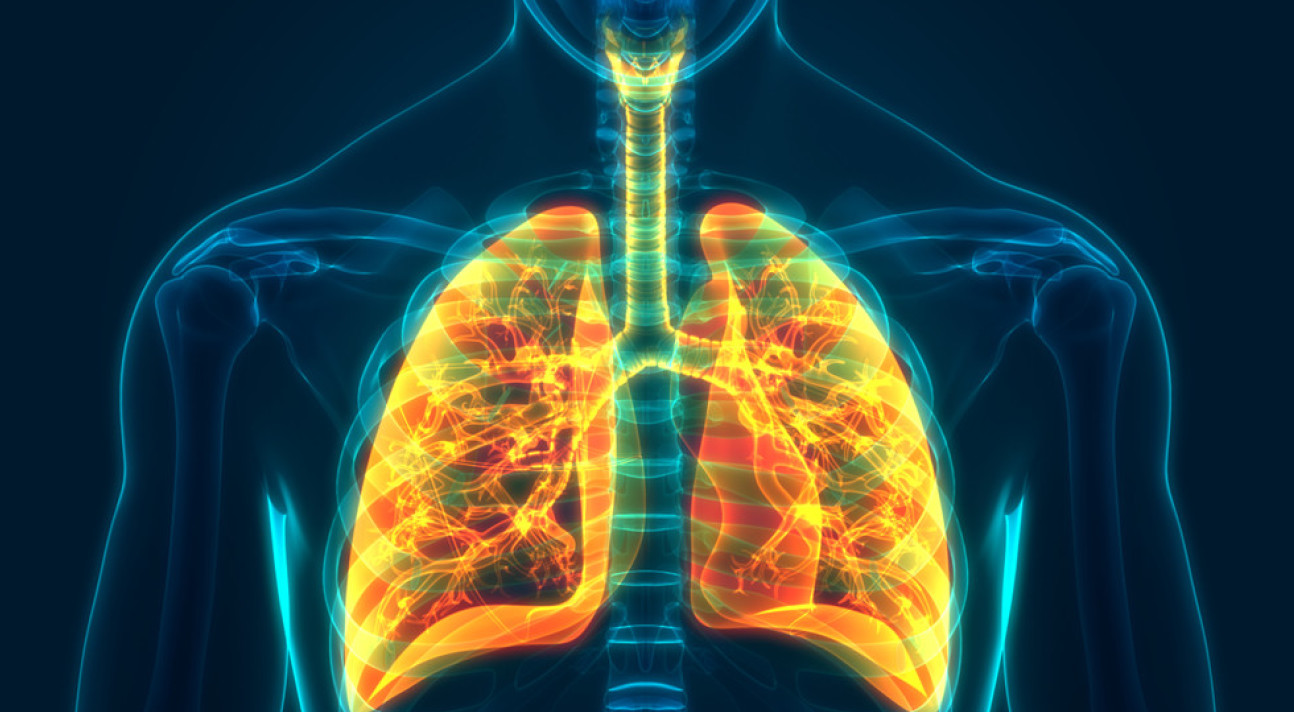Twisting light and COVID treatment: News from the College

Here’s a batch of fresh news and announcements from across Imperial.
From new insights into the ‘handedness’ of materials, to a steroid inhaler treatment for COVID-19, here is some quick-read news from across the College.
Twisting light

Ultra-thin polymer films are materials that could be used in new technologies including lightweight, low-cost and flexible polarisation-sensitive light detectors, room temperature spintronic devices and high-efficiency LED displays. Many of the applications rely on the films’ ability to detect chirality – the ‘handedness’ of things such as light, which can be left- or right-polarised.
Now, researchers from Imperial College London, J. A. Woollam & Co, the University of Nottingham, the University of Barcelona, the Diamond Light Source and the Advanced Light Source have used advanced techniques to reveal how chiral phases arise in these materials, paving the way for design of future materials that optimise their chiral functionality.
Read the full paper in Nature Communications by Jessica Wade et al.: ‘Natural optical activity as the origin of the large chiroptical properties in π-conjugated polymer thin films’
Reducing hayfever reaction
 Researchers have found that allergen immunotherapy can suppress T cells of hayfever sufferers, so they have less of a reaction to grass pollen.
Researchers have found that allergen immunotherapy can suppress T cells of hayfever sufferers, so they have less of a reaction to grass pollen.
Patients who were exposed to grass pollen over time, either by injection or by tablet under the tongue, had induced T cell tolerance to grass pollen. This means the T cells, or more specifically the ‘T follicular helper cells’, an important part of our immune system, do not react so much to grass pollen and the plight of hayfever sufferers can be eased. The scientists consider T follicular cells as therapeutic targets for allergic diseases.
Read the paper in JACI from Mo Shamji et al.: Grass pollen immunotherapy alters chromatin landscape in circulating T follicular and regulatory cells
Steroid treatment for COVID
 Steroid inhalers used for conditions such as asthma and COPD may help prevent COVID-19 from entering the lungs, suggests a new study.
Steroid inhalers used for conditions such as asthma and COPD may help prevent COVID-19 from entering the lungs, suggests a new study.
Steroid inhalers are prescribed for patients with asthma and chronic obstructive pulmonary disease (COPD) – an umbrella term for conditions such as bronchitis and emphysema.
In the early-stage study, published in the Journal of Allergy and Clinical Immunology, the researchers investigated the effect of steroid inhalers on a type of receptor called ACE2. Receptors are docking points on the outside of cells – ACE2 is the docking point the SARS-CoV-2 virus (which causes COVID-19) uses to enter lung cells.
Using animal models and cells from patients with COPD, the research team, led by Dr Aran Singanayagam from Imperial’s National Heart and Lung Institute, found that steroid inhalers reduced the number of ACE2 receptors. This suggests the use of inhalers may offer some protection against COVID-19, say the scientists. The team are now investigating whether steroid inhalers may protect healthy individuals against COVID-19.
–
Want to be kept up to date on news at Imperial?
Sign up for our free quick-read daily e-newsletter, Imperial Today.

Article text (excluding photos or graphics) © Imperial College London.
Photos and graphics subject to third party copyright used with permission or © Imperial College London.
Reporter
Hayley Dunning
Communications Division
Andrew Youngson
Communications Division
Kate Wighton
Communications Division
Ms Helen Johnson
Communications Division